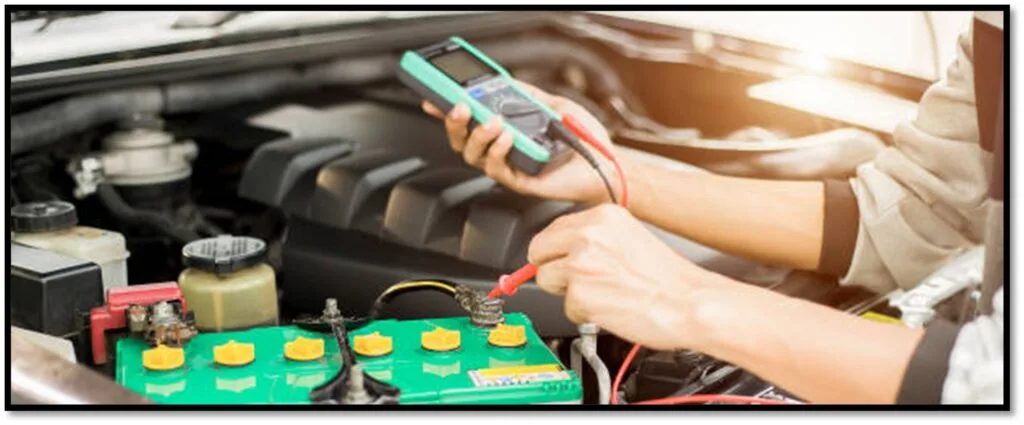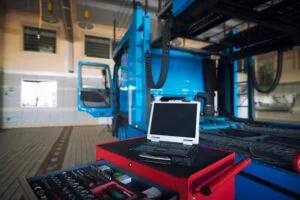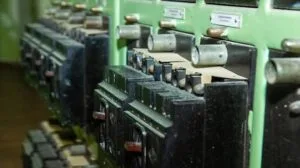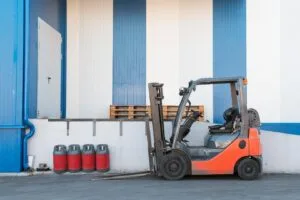When it comes to industrial batteries, whether for forklifts, backup power systems, or other heavy-duty equipment, ensuring they are covered under a warranty is crucial. Industrial batteries are significant investments, and understanding how battery warranties work can save you from unexpected costs and operational downtime. But what exactly do industrial battery warranties cover, and how can you ensure you’re making the best choice for your business?
In this blog, we’ll explore everything you need to know about industrial battery warranties. From what’s included in a warranty to tips on understanding terms and conditions, we’ll provide a comprehensive guide to help you make informed decisions when purchasing and maintaining industrial batteries for your operations.
What is an Industrial Battery Warranty?
An industrial battery warranty is a guarantee from the manufacturer or supplier that the battery will perform up to a certain standard for a specified period. If the battery fails or underperforms during the warranty period, the manufacturer will usually repair or replace it. Warranties are essential for ensuring the longevity and performance of industrial batteries, which are often subjected to demanding conditions in industries like manufacturing, logistics, and construction.
Key Elements of an Industrial Battery Warranty
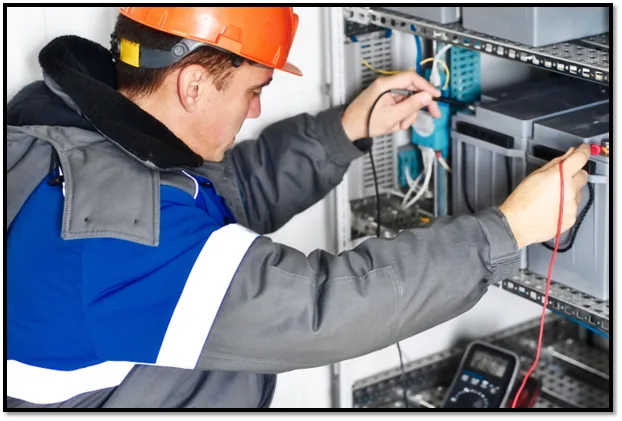
Not all warranties are created equal, and understanding what’s covered—and what isn’t—can help you avoid misunderstandings later on. Here are the primary components of an industrial battery warranty:
1. Warranty Duration
Most industrial batteries come with a warranty period that typically ranges from 1 to 5 years. Some premium batteries may offer even longer coverage. The warranty duration depends on the battery type, its intended use, and the manufacturer’s policy.
- Short-Term Warranties (1-2 years): Often for budget-friendly options or less-demanding applications.
- Long-Term Warranties (3-5 years): Typically for higher-end batteries with longer life cycles and better performance.
2. Battery Performance Coverage
Battery performance is the core aspect of any warranty. For most industrial battery warranties, coverage extends to the battery’s ability to hold charge, its overall lifespan, and how it performs under normal operating conditions. Common issues covered include:
- Capacity Loss: If the battery’s capacity falls below a certain percentage of its original performance (usually 80%) within the warranty period.
- Failure to Hold Charge: If the battery fails to retain charge after it’s been charged according to the manufacturer’s guidelines.
3. Parts and Labor Coverage
Some warranties include coverage for the battery’s components, including the battery cells, terminals, and other parts. Others may also include labor costs for repair or replacement. Understanding the scope of parts and labor coverage is essential because it can significantly affect your overall maintenance expenses.
- Parts-Only Coverage: The manufacturer may cover the cost of the battery replacement but not the labor involved in removing and installing it.
- Full Coverage (Parts and Labor): Some warranties provide complete coverage, including labor costs for repair or replacement.
4. Exclusions and Limitations
It’s important to read the fine print in any warranty agreement, as there are often exclusions and limitations. These might include:
- Improper Usage: Warranties may not cover damage caused by improper charging, overuse, or misuse of the battery.
- Environmental Conditions: Extreme temperatures, humidity, or exposure to corrosive chemicals could void the warranty if the battery is not used or stored according to the manufacturer’s instructions.
- Unauthorized Repairs: Repairing or altering the battery with unauthorized parts or by unqualified personnel can invalidate the warranty.
5. Pro-Rated Coverage
Some battery warranties are pro-rated, which means that if the battery fails after a certain period, the manufacturer will only cover part of the replacement cost. As the warranty period progresses, the coverage amount decreases. For instance:
- First Year: Full coverage or close to it.
- Second Year: Partial coverage (e.g., 80% of the replacement cost).
- Third Year: Further reduced coverage (e.g., 50% of the replacement cost).
Why Battery Warranties Are Important for Industrial Applications
A reliable industrial battery warranty is essential for businesses that rely on heavy-duty equipment. Here’s why:
1. Protection from Unexpected Costs
Industrial batteries are a significant investment, and repairs or replacements can be costly. A comprehensive warranty provides financial protection, helping to reduce unforeseen expenses, especially in critical operations where downtime can be expensive.
2. Increased Battery Lifespan
By choosing a battery with a strong warranty, you can expect your battery to last longer and operate more efficiently. Many manufacturers design their products to meet specific performance standards during the warranty period, ensuring higher quality and durability.
3. Minimized Downtime
In industrial settings, downtime is a major concern. With a solid battery warranty, you have peace of mind that the battery will be replaced or repaired quickly, minimizing disruptions to your operations. This is especially crucial in industries like logistics, where machinery must run continuously.
4. Better Maintenance Practices
A warranty often encourages better maintenance practices. Many manufacturers will offer guidance on how to properly care for the battery, ensuring it remains within optimal performance standards. This helps businesses maximize battery life and reduce the chances of failure.
How to Choose the Right Industrial Battery Warranty
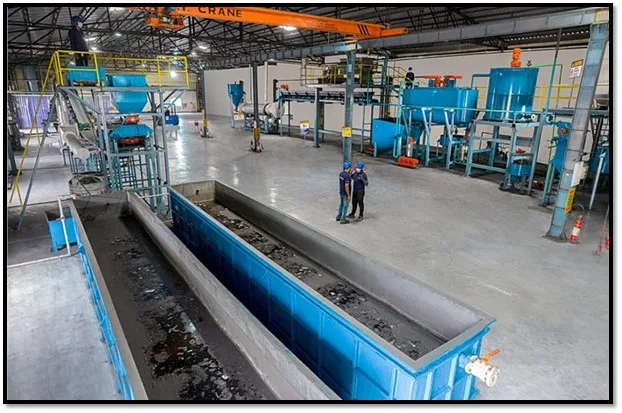
Choosing the right battery warranty involves evaluating your specific needs and understanding the warranty terms that suit your business. Here are some factors to consider:
1. Consider the Application and Environment
The type of industrial application and environmental conditions will influence the battery’s longevity and performance. Batteries used in harsh environments, like extreme temperatures or high humidity, may require more robust warranty coverage.
2. Warranty Length and Pro-Rated Coverage
A longer warranty period typically indicates a higher-quality battery. However, be sure to check the pro-rated coverage terms to understand when you’ll start sharing the cost of repairs or replacement.
3. Warranty Transfers and Coverage for Multiple Units
Some warranties are transferable if you sell or lease your equipment, while others may be limited to the original purchaser. Also, if you operate multiple machines or equipment, look for warranties that cover several units or offer discounts on bulk purchases.
4. Read the Fine Print
Always read the full warranty document before making a purchase. Pay attention to exclusions, limitations, and maintenance requirements to ensure that you won’t be caught off guard if something goes wrong.
Types of Battery Warranties
| Warranty Type | Duration | Coverage | Exclusions | Pro-Rated Coverage |
| Standard Warranty | 1-2 years | Capacity loss, performance issues | Improper usage, extreme conditions | Reduces over time |
| Extended Warranty | 3-5 years | Full replacement, capacity loss | Environmental damage, unauthorized repairs | Lower coverage after year 2 |
| Pro-Rated Warranty | 2-3 years | Limited to parts | Misuse, failure to follow instructions | Gradual decline in coverage |
FAQs
1. What does an industrial battery warranty cover?
An industrial battery warranty generally covers issues like performance problems, reduced capacity, and failure to hold charge. Some warranties also cover labor and parts, while others may only cover the battery itself.
2. How long do industrial batteries last?
Industrial batteries typically last 3-5 years, depending on the battery type and how well they are maintained. Warranties usually last for 1-5 years.
3. What is a pro-rated warranty?
A pro-rated warranty reduces coverage over time. For example, after the first year, you may only receive a portion of the replacement cost, and this amount continues to decrease as the warranty period progresses.
4. Are there any warranties that cover environmental damage?
Most standard warranties do not cover damage from environmental conditions like extreme heat, cold, or humidity. However, certain high-end batteries may offer enhanced warranties with more comprehensive coverage.
5. Should I opt for an extended warranty for my industrial batteries?
If you rely heavily on your industrial equipment and cannot afford downtime, an extended warranty might be worth considering. It offers peace of mind by covering more extended periods of use.
Conclusion
Understanding industrial battery warranties is crucial for ensuring that your investment is protected and that your operations run smoothly. By choosing the right warranty, you can avoid unexpected costs, reduce downtime, and maximize battery life. Always pay close attention to the warranty duration, coverage, and any exclusions, and choose a warranty that aligns with your business needs.
At Industrial Batteries Accessories Ltd., we offer a range of industrial batteries backed by reliable warranties to ensure the longevity and efficiency of your equipment. Our expert team is always available to help you select the best battery and warranty for your needs, ensuring optimal performance for years to come.

